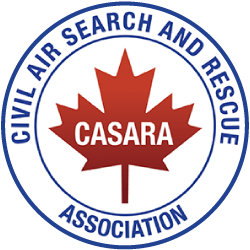
CASARA Tips on Hiking The Great Trail
“The Great Trail is open from coast to coast with much of it in the back country. Hikers using the trail need to be prepared and skilled to ensure a safe and enjoyable hike. As a 30-year member of CASARA (Civil Air Search and Rescue Association) that provides search capability to augment and at times supplement RCAF (Canadian Forces) SAR (Search and Rescue) resources in the resolution of aeronautical SAR incidents I have been involved in many searches that could have been avoided or shortened by people being prepared. Like a pilot filing a flight plan, carrying survival gear and first aid supplies the outdoor enthusiast using the trail should be prepared as well. The first step should be trip planning and preparation. Planning would be to research your planned route an easy task in this digital age. Determine how long your trip will take. Are you fit and will you be within your physical limits? Next prepare a regional / seasonal specific survival kit. For a day trip don’t dress for a brisk hike have enough clothing to keep you warm and dry throughout the night if necessary. Carry navigation equipment such as a map, compass, and GPS and know how to use them. Have a means to start a fire for warmth or to signal for a rescue. Other equipment to bring along but not limited to would be a sharp knife, flashlight, first aid kit, rope, saw blade and signal mirror. Try to keep as much of this equipment on your person in case you get separated from a backpack. Food is not essential for the first 24 hours but have at least 2 litres of water if no source clean water is available. Communication is also essential tell people where you are going and when they can expect you back especially the people who would report you missing or overdue. Don’t rely on just a cell phone. Satellite devices such as a SPOT that can be set to track your progress and send OK and help messages are available. Aircraft are required to carry ELT’s (Emergency Locator Transmitters) likewise hikers can carry PLB’s (Personnel Locator Beacons) to reduce rescue time if required.”
John Fargey
VP Training and Operations, CASARA National
